Protecting health care: Experts share best practices during regional meet
… The Health Care in Danger (HCiD) unit of the International … organized the second Asia-Pacific Regional Health Care in Danger Meeting from 21 to 24 …
… The Health Care in Danger (HCiD) unit of the International … organized the second Asia-Pacific Regional Health Care in Danger Meeting from 21 to 24 …

… practices to improve access to essential health services during peace support operations … African countries. "When access to health care is hindered or blocked during peacekeeping … Committee as part of the Health Care in Danger project, drew on the participants' …
… academia can help tackle violence against health-care personnel and facilities. In May 2017, it … key messages from the Health Care in Danger initiative into its curricula. We asked …

… Violence against health-care workers and facilities, medical vehicles … of the Movement launched the Health Care in Danger (HCiD) initiative . This initiative has …
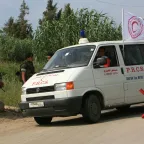
… Health Care in Danger newsletter - March 2016 On 15 February, three more health-care facilities in Syria were bombed. …
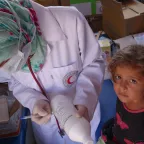
… violent incidents that result in injuries to health workers and damage to hospitals, … Hospital joined forces to launch a Health Care in Danger project to protect health workers in …
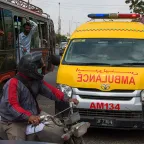
… that intensified was violence against health-care workers. The National Medical Mission … threats; communities having their access to health services restricted or cut off entirely; …
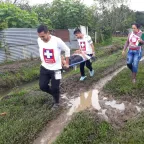
… are often a patient's first contact to health-care services. To guarantee the provision of … takes to do it, and duck away from potential danger, can prove to be fatal. In other, …
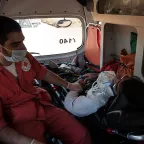
… As part of the Health Care in Danger (HCiD) initiative, the ICRC seeks to … preventing and addressing violence against health care. In line with this initiative, the …
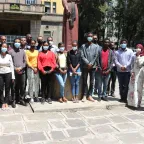
… infrastructure projects including in the health sector. It led to the immediate … To prevent the collapse of the secondary-health-care system, the International Committee of the …

Try one of the following resources:
Created in 1863, the ICRC library, alongside the ICRC archives, provides an indispensable documentary reference on the organization itself and international humanitarian law.
International humanitarian law is based on a number of treaties, in particular the Geneva Conventions of 1949 and their Additional Protocols, and a series of other instruments.
Customary international humanitarian law consists of rules that come from "a general practice accepted as law" and that exist independent of treaty law.